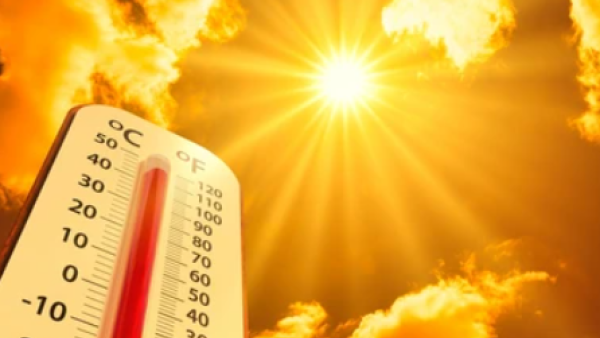A record-breaking heat wave is spreading across the United States, baking the Northeast and Midwest with high temperatures and sweltering humidity.
Everyone is at risk for heat-related illness as body temperatures rise, experts warn.
Heat stroke, heat exhaustion and heat cramps can fell anyone who overheats. People who are outdoors for too long also might develop a heat rash or sun poisoning, which occurs with severe sunburn.
"Sadly, heat-related deaths and illnesses happen every year," said Diane Calello, executive and medical director of the New Jersey Poison Control Center at Rutgers New Jersey Medical School.
The people most vulnerable to heat-related illness include children, older adults, people with chronic illnesses, the disabled, people without air conditioning and those who spend long times outdoors, experts say.
Signs of heat exhaustion or heat stroke can include painful cramps, fever, rapid heart rate, loss of appetite, nausea, vomiting, headache, fatigue, weakness, confusion, agitation, lethargy, hallucinations, delusions and seizures. Coma and death can occur if left untreated.
To stay safe, weather and health experts offer the following safety tips:
Reduce, eliminate or reschedule strenuous outdoor activities until the coolest time of the day
Wear lightweight, loose-fitting, light-colored clothing, and put on a wide-brimmed hat when outdoors
Avoid direct sun and sunburn
Drink plenty of water and non-alcoholic beverages, even if you don't feel thirsty
Avoid sugary beverages and alcohol, which can contribute to dehydration
Avoid hot and heavy meals, which can raise your body temperature
Slap on sunscreen liberally and frequently if outdoors
Give pets lots of fresh water and keep them indoors in air-conditioned areas as much as possible
Keep children and pets out of parked cars, which can reach deadly temperatures even if left under shade with the windows open
Direct portable electric fans away from yourself if the room temperature is hotter than 90 degrees, as the blowing air will dehydrate you faster
Check on older, sick or frail people in your neighborhood who might need help responding to the heat
People also should be aware of the heat risk posed by illicit and prescription drugs, Calello said in a Rutgers news release.
Heat stroke "not only occurs when temperatures reach dangerous levels, but also from the use of certain therapeutic medicines, recreational [legal] drugs and illegal substances," Calello said. "These can prevent the body from cooling down through sweating. Too often, this results in serious complications, including drug-induced fever, dehydration and death."








